Here is some of the reactions to the U.S. attacks that hit nuclear sites in Isfahan, Fordow, and Natanz early on Sunday, amid the ongoing Israeli aggression on Iran.
United Nations
United Nations Secretary-General Antonio Guterres stated that there is a growing threat of the conflict spiraling out of control, potentially leading to catastrophic consequences for civilians, the region, and the world. He emphasized that there is no military solution, asserting that the only viable path forward is through diplomacy, with peace as the ultimate goal.
Saudi Arabia
The Saudi Foreign Ministry condemned the U.S. violation of Iran’s sovereignty, and called on the international community to step up efforts to bring a political solution that guarantees the end of the ongoing crisis. The ministry also called for exercising restraint to prevent further escalation.
Oman
The Arab country, which mediated nuclear negotiations between Tehran and Washington before the start of the Israeli war of aggression against Iran, denounced the American attacks on the Iranian nuclear sites, saying that they are a dangerous violation of international law and the United Nations Charter. Oman also emphasized the legitimate right of all countries to develop their nuclear programs for peaceful purposes.
Iraq
Iraq also condemned the U.S. attacks, describing them as a threat to security and peace in West Asia. Iraqi government spokesperson Bassem Al-Awadi called for calm and negotiation, warning that the escalation of tensions is a dangerous threat to peace, stability and security in the region. Al-Awadi also said that Iraq is opposed to the use of force in international relations, urging respect for the sovereignty of nations and the avoidance of attacks on critical facilities.
Qatar
Qatar’s Foreign Ministry expressed regret over the United States' aggression against Iran, warning about the escalation of tensions and potential disastrous consequences at the regional and international levels. Doha also emphasized the need for the cessation of all military operations and a return to diplomatic efforts.
Pakistan
The Foreign Ministry of Pakistan condemned the U.S. attacks, and expressed deep concern over the possible escalation of tensions in the region. The ministry said that the attacks violated all norms of international law, and the Islamic Republic of Iran reserves the legitimate right to self-defense based on the U.N. Charter.
Pakistan’s Grand Mufti Muhammad Taqi Usmani also reacted, saying that the United States’ attacks on Iran are highly condemnable, which show Washington’s incompliance with their commitments.
Lebanon
President Joseph Aoun warned against the consequences of the U.S. attacks on the Iranian nuclear sites, saying that the attacks would escalate the ongoing tensions and threaten security and stability in other countries in the region. He called for self-restraint and constructive negotiations to avoid further massacre and destruction.
Yemen
The Yemeni government in Sana’a condemned the U.S. airstrikes on the Iranian nuclear sites, saying that the attacks are a clear declaration of war against the Iranian people. It also said that the Yemeni armed forces are ready to target American vessels and warships in the Red Sea.
Yemen's Ansarullah Politburo categorically condemned the U.S. airstrikes as well, linking them to Washington’s unlimited support for the Israeli regime in its atrocities against the Islamic Ummah.
According to Ansarullah’s statement, the strikes on Iran are a clear violation of international law and principles, which would escalate tensions at both regional and international levels. Hizam al-Assad, a member of Ansarullah's Politburo, also warned that the U.S. must be prepared to face the repercussions of its actions.
Egypt
The Foreign Ministry in Cairo issued a statement, expressing concern about the latest developments in Iran. The ministry warned that the swift escalation of tensions will have serious repercussions for security and peace at both regional and international levels. Cairo emphasized the need for pursuing political solutions, noting that negotiation is the only way out of the crisis.
Kuwait
The Foreign Ministry voiced concern over the U.S. attacks on Iran’s nuclear facilities, stating that Kuwait’s government is closely monitoring regional developments with apprehension. The ministry also called for the full cessation of tensions and military operations, highlighting the need for dialogue.
Palestinian resistance groups
Palestinian resistance movements also issued separate statements condemning the U.S. attacks and expressing solidarity with Iran.
Hamas strongly condemned the blatant aggression of the United States against the territory and sovereignty of Iran, expressing assurance that the Islamic Republic is capable of defending its sovereignty.
The Islamic Jihad movement criticized the U.S. for the strikes, labeling them as a clear declaration of war against the Iranian nation. The movement said in a statement that the U.S. administration is the primary enemy of regional nations because of its policies to dominate other countries.
The Palestinian Mujahideen Movement condemned the U.S. airstrikes, describing both the Israeli regime and the United States as the real sources of terrorism in the world, which threaten peace and stability.
Bolivia
President Luis Alberto Arce Catacora, in a post on his X account, condemned the U.S. strikes as treacherous and aggressive. He said that the strikes not only threaten peace in the West Asia region and the world but also violate international law and the U.N. Charter.
Russia
The Russian Foreign Ministry also issued a statement, condemning U.S. attacks on Iranian nuclear sites.
Describing the attacks as “irresponsible,” the statement said they went against international regulations, the U.N. Charter and U.N. Security Council resolutions.
What is most worrying is that the attacks were carried out by a permanent member of the U.N. Security Council, the ministry added.



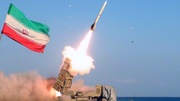
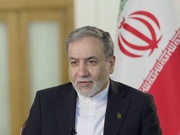
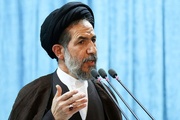




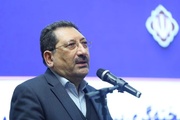
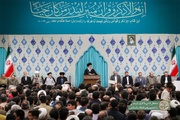
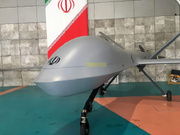












Your Comment